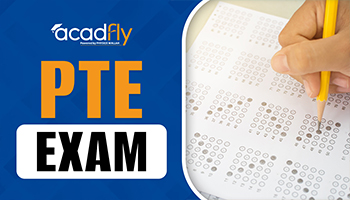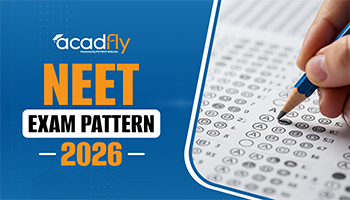

Common Reasons for University Transfer: In the past few years, many Indian students studying abroad have started to transfer to different universities, especially those who are studying medicine. This change has happened for many reasons. Big global events like the COVID-19 pandemic and the war between Russia and Ukraine have made studying harder and more complicated for these students.
Other problems include poor quality of education at some universities and new rules about which degrees are recognized back in India. This article will look at why students decide to transfer to different universities, focusing on those studying medicine abroad, and how they need to follow specific rules from India's National Medical Commission (NMC).
Common Reasons for University Transfer
Students often decide to transfer universities for a variety of reasons, which can be both academic and personal. Here, we focus on the common academic and administrative triggers that compel students, particularly those studying MBBS abroad, to seek a change in their educational institution:
Global Crises Impacting Education - Significant global events such as the COVID-19 pandemic have dramatically influenced educational processes worldwide. For example, during the pandemic, Indian students in China had to return to India as the universities switched to online teaching, which was later not recognized by the National Medical Commission (NMC) in India. Such disruptions often force students to transfer to institutions that meet the regulatory standards of their home country.
Geopolitical Tensions - Conflicts like the Russia-Ukraine war also disrupt education. Many Indian students in Ukraine found themselves needing to transfer as the ongoing conflict made it unsafe and impractical to continue their studies there.
Educational Quality Concerns - Another major reason for transfer is the realization of substandard education. Students may find that the educational infrastructure or the level of instruction at their current university does not meet their expectations or the required standards for medical training.
Regulatory Changes and Recognition of Degrees - New regulations or changes in the recognition of degrees significantly affect students' decisions. For instance, changes in NMC regulations regarding the recognition of online courses or degrees from certain universities compel students to transfer to institutions whose degrees will be recognized in India.
Misalignment with Career Objectives - Sometimes, students find that their university's curriculum or specialization options do not align with their career goals or the medical licensing requirements in India, prompting them to seek transfers to institutions that better suit their career pathways.
A Few Rare Reasons for University Transfer
Aside from the common reasons for transferring universities, there are several less typical circumstances that can also influence a student's decision. These include:
Personal Health Issues - Sometimes, students face unexpected health challenges that require them to move closer to home or to a location with better medical facilities. This is particularly critical for students whose health conditions require ongoing treatment that may not be adequately supported at their current location.
Cultural and Environmental Adjustment Issues -Some students struggle to adapt to the cultural environment or climate of the country where they are studying. This can lead to feelings of discomfort and alienation, prompting a transfer to a more familiar or accommodating environment.
Family Circumstances - Significant changes in family situations, such as the illness of a family member or economic difficulties, can necessitate a return to one's home country or a transfer to a university that is financially more feasible.
Availability of Advanced Research Opportunities - Occasionally, students may discover that another university offers more advanced research facilities or opportunities in their area of interest, which can significantly impact their academic and career prospects.
Changes in Personal Educational Goals - As students progress in their educational journey, their academic interests and goals can evolve. This might lead them to seek out institutions that offer specialized programs more aligned with their newly developed interests.
NMC Guidelines for MBBS Abroad
The National Medical Commission (NMC) sets specific guidelines for Indian students pursuing MBBS abroad to ensure that their medical education meets the required standards for practicing medicine in India. These guidelines are crucial for maintaining the quality and authenticity of foreign medical degrees. Here are the key regulations set by the NMC:
Pursuit of MBBS in Accredited Foreign Medical Universities: Students must enroll in foreign medical universities recognized by the NMC, with a course duration of at least 54 months.
Mandatory Internship Duration - The MBBS course must include a compulsory internship of no less than 12 months in the same foreign country, ensuring that students gain practical exposure and experience.
Complete Course from the Same Campus - The entire MBBS program must be completed at the same campus, and programs conducted across multiple campuses are not recognized.
Medium of Instruction - The medium of instruction must be English for the entire course duration to ensure uniformity in learning and assessment.
No Distance Learning - MBBS courses must be conducted on-campus. Distance learning or online programs are not accepted under any circumstances.
Compliance with Local Medical Regulations - Students must study subjects listed under Schedule I of the NMC Regulation and register with the medical regulatory body in the respective country, ensuring their degree is at par with local graduates.
Post-Graduation Requirements: Upon returning to India, graduates must complete a 12-month compulsory rotatory internship (if not completed abroad) and clear the Foreign Medical Graduate Examination (FMGE) or the National Exit Test (NEXT) to practice in India.
University Transfer Rules for MBBS Abroad
When considering transferring universities for an MBBS program abroad, students must adhere to specific rules set by the National Medical Commission (NMC) and the universities involved. Understanding these rules is crucial for ensuring the transfer is valid and the degree is recognized upon return to India. Here’s a breakdown of the essential rules:
Transfer Timing and Restrictions - Before November 2021, there were fewer restrictions on university transfers. However, with new regulations, transfers, especially from universities offering instruction in languages other than English or from countries like Ukraine and the Philippines due to specific issues, are now closely monitored and limited. Students must ensure they transfer within the permitted time frames and under acceptable circumstances as outlined by the NMC.
Recognition of Credits - The NMC requires that any credits obtained from the original university must be recognized by the new university. This can be challenging when transferring between countries with different educational standards or curricula.
Documentation and Approval - Students must provide comprehensive documentation, including academic transcripts and course syllabi, to both the outgoing and incoming institutions. The transfer must be approved by both universities and must comply with NMC regulations to ensure the continuation of the degree's recognition.
Meeting Local and NMC Standards - The new university must meet the NMC’s educational standards, and the curriculum must align closely with what is taught in Indian medical schools. This alignment is vital for students who intend to return and practice medicine in India.
Final Deadline for Transfer Applications - As per the latest guidelines, the NMC set a final deadline (February 2024) for accepting transfer applications from certain countries. This is to accommodate students affected by specific crises or changes in educational policy.
How to Apply for University Transfer
Applying for a university transfer, especially for an MBBS program abroad, involves several steps that need to be carefully followed to ensure a successful transition. Here’s a step-by-step guide to the application process:
Research and Select Potential Universities - Begin by researching universities that offer MBBS programs and are recognized by the NMC. Ensure these institutions meet both your academic and personal requirements, such as location, language of instruction, and facilities.
Contact Both Universities - Reach out to the administrative offices of both your current and potential new university. It’s essential to discuss your intention to transfer and understand their specific requirements and processes.
Review and Gather Necessary Documentation - Collect all required documents, including your academic transcripts, proof of enrollment, and detailed syllabi of your completed courses. This documentation will be critical for credit recognition and transfer approval.
Submit Application for Transfer - Complete the transfer application form for the new university, attaching all necessary documentation. Make sure to follow the application deadlines and requirements closely.
Seek Approval from Both Universities - Your transfer request must be approved by both the current and receiving universities. This may involve interviews or additional assessments to determine your eligibility and academic standing.
Comply with Visa and Immigration Requirements: Ensure that your student visa and any other immigration documents are updated to reflect your new university. This might require additional paperwork and approvals from governmental bodies.
Confirm Transfer and Enrollment - Once approved, confirm your transfer and complete any enrollment steps required by the new university. This might include paying tuition fees, registering for classes, and arranging for housing.
Notify the NMC: Inform the NMC about your transfer to ensure that your new program is recognized and that you remain eligible to practice in India after graduation.
University Transfer Expenses
Transferring to a different university, especially when it involves studying MBBS abroad, can incur various expenses. Understanding these costs can help students and their families prepare adequately. Here's a breakdown of the typical expenses involved in the university transfer process:
Application Fees - Many universities charge a fee for processing transfer applications. These fees vary widely depending on the institution and the country.
Transcript and Document Fees - There might be charges for obtaining official transcripts, having documents translated, or getting them notarized, which are often necessary for the transfer application.
Visa and Immigration Fees - If you are transferring to a university in a different country, you may need to apply for a new student visa, which involves certain costs including visa application fees and potentially legal consultation fees.
Travel Expenses - Moving to another university, especially one in a different country, involves travel costs. These can include airfare, baggage fees, and local transportation.
Housing and Relocation Costs - Securing accommodation in the new location can involve several expenses, such as deposits, rent advances, and furnishings. Relocation also includes the cost of shipping personal belongings.
Tuition Fee Differences - If the tuition fees at the new university are higher, this will be a significant additional expense. Sometimes, there may also be fees associated with the recognition of prior credits.
Health Insurance - Some countries require international students to have health insurance, which may be an additional cost if your current insurance does not cover the new location.
Consultation and Advisory Fees - Hiring educational consultants or legal advisors to assist with the transfer process can add to the overall costs.
Miscellaneous Expenses - Always budget for unexpected costs such as emergency expenses, initial setup costs upon moving, or additional academic supplies needed for the new university.
Who Can Assist You in the University Transfer Process?
When considering a university transfer, especially for MBBS programs abroad, AcadFly emerges as a pivotal resource for students. Specializing in overseas medical education, AcadFly provides tailored guidance and support to ensure a smooth transfer process. Here’s how AcadFly can assist you:
Expert Counseling - AcadFly's team of experienced counselors offers personalized advice to help you understand your options and choose the best path for your medical education abroad. They take into account your academic background, career goals, and personal preferences.
University Selection - With extensive knowledge of international medical universities, AcadFly can help you select the right institution that meets your educational needs and aligns with the guidelines of the National Medical Commission (NMC).
Application Assistance - From filling out application forms to preparing necessary documents, AcadFly ensures that all aspects of your application are complete and submitted on time.
Visa and Legal Support - Understanding the complexities of visa processes and legal requirements, AcadFly provides assistance to navigate these challenges efficiently, ensuring compliance with all regulations.
Pre-departure Briefing - To prepare you for the academic and cultural shift, AcadFly offers comprehensive pre-departure briefings covering everything from travel arrangements to accommodation and studying tips.
Ongoing Support - Once you have transferred, AcadFly continues to offer support to ensure you settle in well and meet the academic standards required to achieve your goals.
Frequently Asked Questions










